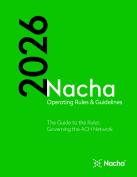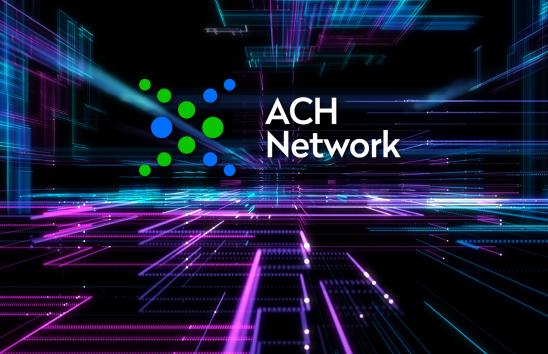Call it EFT or ACH or EDI – But They’re Different and It Matters
Author
“What is the difference between EFT, ACH and EDI?”
We here at Nacha often get asked this question from business financial teams - even from seasoned financial pros.
The quick answer is that all ACH (Automated Clearing House) payments are EFTs (Electronic Funds Transfers), but not all EFT payments are ACH. And EDI (Electronic Data Interchange) is a data format, not a payment.
The longer explanation is that people are confused because different professions have different names for the same thing. Believe me, it took us awhile to figure out why we were getting this question because we didn’t understand that companies commonly refer to ACH payments simply as “EFT,” or “EDI” if the ACH payment also includes remittance information.
Financial pros (accounts payable, accounts receivable, treasury, accounting, finance personnel) call ACH payments “EFT” because “pay by EFT” is listed on their trading partner contracts, forms, websites, accounting programs and even invoices (e.g., “Pay by EFT at account number …”).
Meanwhile, other finance pros may say a payment is an “EDI” instead of an “ACH” payment because the remittance information (e.g., invoice number being paid, customer account number, discount taken, etc.) included with the ACH payment is in EDI format.
Folks in the corporate finance world have their common understanding of terms, and all know what they mean they say “EFT” or “EDI.” But here in the banking world, we think of “EFT” as a general term that covers any method of transferring funds electronically from one bank or credit union account to another (e.g., ACH, wire, credit card, debit card, other digital/virtual currency). “ACH” in our world specifically means the “ACH Network” – the U.S. electronic payment network that features Direct Deposit and facilitated 26.8 billion consumer, business and government transactions worth $61.9 trillion dollars in 2020, and is backed by the Nacha Operating Rules.
Now, I’m not advocating that financial professionals change up their vocabulary. However, it is important to understand some key concepts to properly distinguish “EFT,” EDI,” and “ACH.” Each carries operational and legal meaning, and, well, there are times when it’s good to be precise, like in contract language.
Strictly speaking, EFT is the Electronic Funds Transfer Act – also known as “Regulation E.” This law defines consumer rights and bank/provider responsibilities for the electronic transfer of consumer funds. The Consumer Financial Protection Bureau is the regulator. (The Uniform Commercial Code 4A, or UCC 4A, generally defines commercial and bank-to-business customer rights and responsibilities for the electronic transfer of commercial funds.)
Other “EFTs” (e.g., credit/debit cards, digital/virtual currencies) have specific governing associations and rules for consumer and commercial transactions. For example, each credit card payment brand has a separate governance structure under the auspices of a card association.
“EDI” means Electronic Data Interchange. EDI is a data format that is used for machine-to-machine exchanges of data and messages for a range of payment and related processes. In the payments world, EDI can be used to describe invoices, remittance information and other documents, and provides a common format for computers to interpret data.
“ACH” refers to the U.S. ACH Network. The Nacha Operating Rules dictate bank-to-bank rights and responsibilities for ACH payments (like Direct Deposit), and, through contacts with your financial institutions, the Nacha Operating Rules extend to consumers and commercial companies as well. The ACH Network is governed by Nacha (that’s us!).
Conclusively, financial professionals will no doubt continue to share common acronyms and language when it comes to payments and related matters. However, it’s important to know that the same terms carry specific definitions and meaning in other professions.
Meanwhile, here are some resources to help you get started with ACH payments (or to improve your program):
ACH Consultation
Nacha Consulting is offering a free, 15-minute, no obligation phone consultation to discuss your issues and evaluate options. Complete this form if you would like to connect with the Nacha Consulting team to discuss your organization’s ACH risk issues, Rules compliance, best practices or other concerns.
ACH Resources
Nacha has numerous resources to help businesses better understand the benefits and best practices for ACH payments:
- ACH in the Community – Learn the benefits of ACH for businesses, nonprofits and religious organizations.
- Quick Start Guide – A tool for your business to learn how to pay or get paid electronically using ACH.








